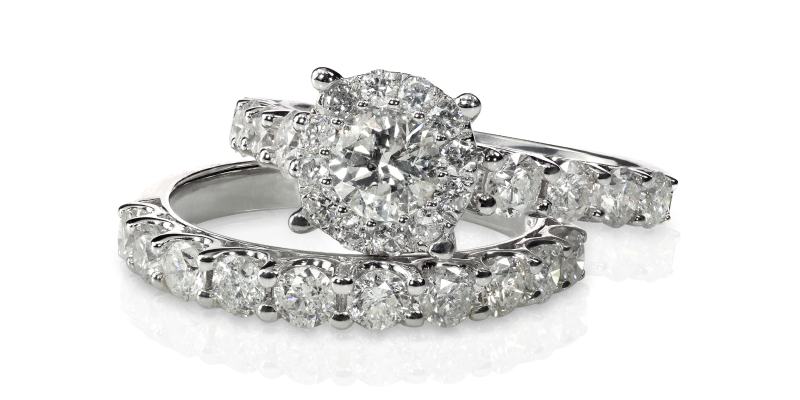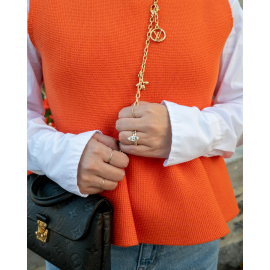Price match guarantee

We’ve teamed up with Klarna to provide flexible payment options, allowing you to shop the way you want. With Klarna, you can split your payment into 3 instalments or choose to pay later, making your shopping experience smoother and more convenient. Your order total must be between £100 and £499 to qualify.

We’ve teamed up with Klarna to provide flexible payment options, allowing you to shop the way you want. With Klarna, you can split your payment into 3 instalments or choose to pay later, making your shopping experience smoother and more convenient. Your order total must be between £100 and £499 to qualify.

May 14, 2021 | by Admin
It is law within the UK that every item of precious metal sold such as Platinum, Gold, Silver is stamped labelling the item with the type of metal it is. Platinum pieces which weigh less than 0.5 grams, 18ct Gold and Palladium pieces weighing less than 1.0 gram and Silver pieces weighing less than 7.78 grams are except from hallmark.
At Diamonds Factory all our products are hallmarked as per UK hallmarking law from London Assay Office (The GoldSmith Company)
The Goldsmiths' Company Assay Office is the oldest assay office in the United Kingdom. It has provided hallmarking services since The Goldsmiths' Company was founded in the 1300s. The company received its royal charter in 1327 and ranks 5th in order of precedence of the 12 Great Livery Companies of the City of London.
Hallmarking dates back to the 1300s when Edward I of England passed a law requiring any item made of silver, which was offered for sale, to be at least of equal quality as that of the coin of the realm (silver currency). The wardens of The Goldsmiths' Company were tasked with visiting workshops in the City of London to assay (test) silver articles. If these articles were found to be below standard they were originally destroyed and the metal forfeited to the King. If they passed, each article received the King's mark of authentication - the mark of a leopard's head. By 1478, there were several hundred workshops and merchants manufacturing silver articles in the City of London. It was not possible for the wardens to visit them all so the merchants were ordered to bring their items to Goldsmiths' Hall for testing and marking and a permanent Assay Office was established in the building. This is the origin of the term hallmark - struck with the King's mark at Goldsmiths' Hall.
In 1544 the Goldsmith's Company adopted the King's mark as their town mark and the mark of the leopard's head is now internationally recognised as the mark of this assay office.
The Goldsmiths's Company Assay Office is still based at Goldsmiths's Hall and remains the oldest company in Britain to be continually trading from the same site. However, it also has two satellite offices; at Greville Street in Hatton Garden in the heart of the London jewellery quarter and within a high security complex near London's Heathrow airport. It now has a new off-site facility within the Dalston-based jewellery manufacturer, Allied Gold. This is the first time in the Assay Office's 700 year history that it has opened permanent hallmarking services on a customer's premises.
In addition to hallmarking, the office has now expanded its range of services to support the jewellery trade and enforcement authorities. It offers a variety of specialist analytical services including nickel, lead & cadmium testing, antique silver dating, non-destructive compositional analysis, plating thickness measurement and a melt and assay service for scrap precious metal carried out in their fully independent on-site laboratory. Other services offered are a jewellery valuation service, laser marking, trading standards assistance, high quality photography and a comprehensive range of training and educational seminars, lectures and specialist events.






If you are looking to buy a piece of jewellery, you will need to consider precious metals. White gold and platinum tend to be popular choices for engagement rings and wedding rings because of their elegant and versatile bright white appearance. But what is the difference between the two? We debate platinum vs white gold to reveal the differences between these two similar-looking metals.
What is platinum?
Platinum is a beautiful, naturally white metal. Compared to other metals used within jewellery, it can be expensive. Why is platinum more expensive? Platinum is rarer than gold, and the colour is naturally occurring. Unlike gold, platinum is found in an almost pure form within jewellery, whereas gold gets its colour through being alloyed with other metals. It is also known as a luxury metal - once reserved for the rich and famous.
Pros of platinum gold
Rarer than gold
More durable
Heavier metal
Hypoallergenic
Symbol of prestige
White gold vs platinum price
If you are wondering whether to choose platinum or white gold for your jewellery, there are a few things that may influence your decision. Price may be one of those factors. How expensive is platinum? Platinum is significantly more expensive than white gold. Platinum engagement rings cost from £400 for a simple plain setting to upwards of £1500 for a vintage-style piece.
White gold vs platinum durability
Platinum is significantly more durable than white gold, making it a good choice for those who use their hands a lot or lead an active lifestyle. It is also a heavier metal than white gold. If both metals are taken care of properly, they will remain in the same beautiful condition for a lifetime.
White gold vs platinum colour and care
As platinum is a naturally white metal, it doesn’t rely on a combination of different metals to create its hue. White gold, on the other hand, does. White gold is made from a mixture of yellow gold and silvery-white alloy metals such as nickel. Because of this, a yellow sheen may be visible after some time. Therefore, white gold jewellery should be professionally polished and rhodium-plated to maintain its colour.
White gold vs platinum sensitive skin
Platinum is a hypoallergenic metal because it gets its colour naturally. Unlike white gold, platinum does not get its white colour from alloy metals such as nickel. Nickel can cause an allergic reaction or discomfort for those with sensitive skin. As nickel is present within white gold, it is advisable to get white gold diamond rings rhodium plated to minimise contact between your skin and nickel.
Platinum vs gold
To the naked eye, platinum and white gold look very similar to each other. White gold engagement rings are popular for many reasons. One reason is that the bright white appearance of the metal complements diamonds beautifully. Plus, white gold is more affordable than platinum, so it is a good option for those on a budget.
Pros of white gold
More affordable than platinum
Complements diamonds
Stronger than yellow gold
Popular for engagement rings
White gold or platinum? There are pros and cons to both of our favourite white metals, and both tend to be popular choices for engagement rings and wedding rings. To learn more about metals, head to our metal education guide or browse our selection of white gold diamond rings and platinum diamond rings.